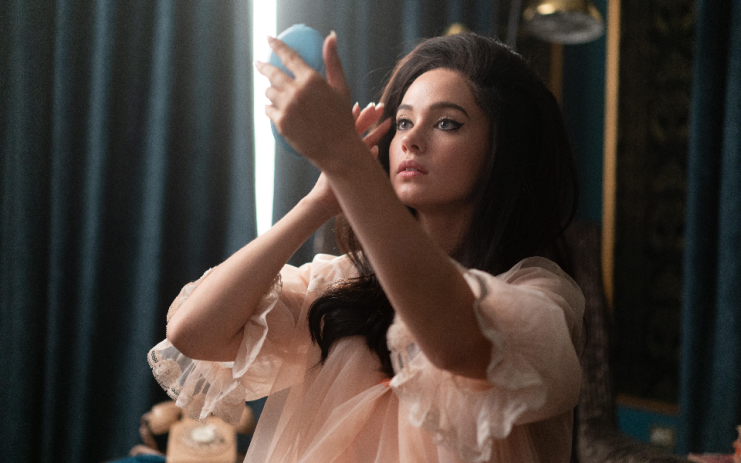Priscilla film review: Sofia Coppola crafts shocking account of Elvis abuse

Priscilla film review and star rating: ★★★
His caricatured image replete with quiff and bodysuit was reduced to Las Vegas impersonator shows. But following Baz Luhrmann’s titular Elvis last year, which celebrated the singer’s progressive politics, there has been renewed interest in The King. A stage show is coming up, but first Sofia Coppola’s sideways look at his legacy through the eyes of his wife Priscilla Presley, which will shock and redefine his legacy forever.
It is the first time the story of their love has been told without sparing the grimy details. Priscilla was fourteen when she first met Elvis, and this story is based on her own book about the couple’s life. In both the book and film we learn about Priscilla’s first meeting with Elvis, who was 24 when he met the school girl. Their meeting was set up by adult friends of Elvis’ who brought her to grown up parties, where Elvis seduced her, and essentially groomed her. He even arranged custody for her to move to Graceland when she was still in school at an age where clearly Priscilla was highly impressionable and arguably unable to make her own grown-up decisions.
Coppola, a masterful storyteller of the heroine from her work on Marie Antionette, spends the first hour or so of Priscilla examining what being courted by Elvis must have felt like for the young girl. Cailee Spaeny, a 25-year-old relative newcomer, plays Priscilla with wide-eyed excitement – you would be, wouldn’t you? Elvis has chosen you! – and it’s thoroughly gripping. In early scenes, including one where Priscilla wanders down a school corridor after a night spent with Elvis, in her eyes Spaeny captures the sense of wanting to burst with excitement. You feel she would, would it not be for the fact she is held in her body by a resilient set of bones.
Ari Cohen and Dagmara Dominczyk add layers of comic and dramatic effect as Priscilla’s of-the-era parents. They are stern but loving, and genuinely concerned. Cinematographer Philippe Le Sourd’s drab familial setting for young Priscilla contrasts beautifully with the ostentatious wealth of Presley in establishing scenes. Coppola lingers on Spaeny’s eyes, allowing us to almost feel her thoughts. Then there is the dark stuff: Elvis’ moods, for instance. At one point Jacob Elordi’s Elvis (a confident performance) throws a chair at Priscilla for not liking a new track he’s laying down. At various other points, he feeds her narcotics in bed.
Priscilla is nicely paced until about the halfway point, but then at the point the couple get engaged, you suddenly realise how much more of the film there is left to go, and from there the events and plot start to feel rushed, focusing on major events like the wedding and Elvis’ downfall with drugs rather than on Priscilla and her emotional journey. The final forty minutes feel similar to every other Elvis project, projecting the same images of the superstar on drugs, on stage, then in bed taking more drugs again.
It’s a shame, and it feels ironic, given this film was supposed to tell her story, not his. The ending, though not emotionally empty, also feels rushed and jarring. During a pre-film talk at the London Film Festival screening, producers revealed the film took only 30 days to film. I wonder whether Coppola, despite her fame, ran out of money and had spent too long on the establishing story about their early relationship. Nonetheless Priscilla is a committed and engrossing watch revealing a murky, shocking depth to The King that needs to be told.
The Priscilla film is in cinemas in the UK on 1 January 2024; this review was written after a London Film Festival premiere screening in October
Read more: Leonardo DiCaprio and Martin Scorsese behind the scenes on Killers of the Flower Moon
Read more: Mary Harron interview: Daliland director on working with Sir Ben Kingsley
